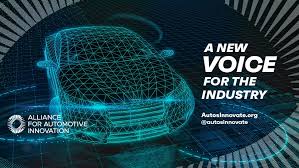Driving Forward: The Evolution of Auto Innovation

The Future of Auto Innovation
As technology continues to advance at a rapid pace, the automotive industry is undergoing a transformation like never before. From electric vehicles to autonomous driving capabilities, auto innovation is shaping the future of transportation in exciting ways.
Electric Vehicles (EVs)
One of the most significant advancements in auto innovation is the rise of electric vehicles. With concerns about climate change and the push for sustainable transportation options, EVs have gained popularity among consumers and manufacturers alike. Companies are investing heavily in developing EV technology to improve battery life, charging infrastructure, and overall performance.
Autonomous Driving
Another groundbreaking development in the automotive industry is autonomous driving technology. Self-driving cars are no longer just a concept but a reality on our roads. Innovations in sensors, artificial intelligence, and connectivity have made it possible for vehicles to navigate and operate without human intervention. While there are still challenges to overcome, such as regulatory issues and safety concerns, the potential impact of autonomous driving on road safety and efficiency is immense.
Connected Vehicles
The integration of connectivity features in vehicles has also revolutionized the driving experience. From GPS navigation systems to smart infotainment systems, connected vehicles offer convenience, entertainment, and safety benefits for drivers and passengers. As technology continues to evolve, we can expect even more advanced connectivity features that enhance communication between vehicles and infrastructure.
Sustainability Initiatives
Auto innovation is not just about technological advancements but also about sustainability initiatives. Manufacturers are increasingly focusing on reducing carbon emissions, improving fuel efficiency, and exploring alternative fuel sources such as hydrogen fuel cells. By prioritizing environmental responsibility in their product development processes, automakers are contributing to a more sustainable future for transportation.
Conclusion
The future of auto innovation is bright with possibilities. From electric vehicles to autonomous driving capabilities and connected features, the automotive industry is at the forefront of technological advancement. By embracing innovation and sustainability initiatives, automakers are shaping a future where transportation is not only efficient but also environmentally friendly.
Understanding Auto Innovation: Key Questions and Insights on the Future of the Automotive Industry
- What is auto innovation?
- How is auto innovation changing the automotive industry?
- What are some examples of auto innovation in modern vehicles?
- How do electric vehicles contribute to auto innovation?
- What role does autonomous driving technology play in auto innovation?
- How are connected features revolutionizing auto innovation?
- Why is sustainability important in the context of auto innovation?
What is auto innovation?
Auto innovation refers to the continuous development and implementation of new technologies, features, and processes within the automotive industry to improve the driving experience, enhance vehicle performance, and address emerging challenges. From advancements in electric vehicles and autonomous driving capabilities to connectivity features and sustainability initiatives, auto innovation encompasses a wide range of developments that shape the future of transportation. By pushing boundaries, exploring new possibilities, and embracing cutting-edge solutions, auto innovation drives progress and transformation within the industry to meet the evolving needs and expectations of consumers and society.
How is auto innovation changing the automotive industry?
Auto innovation is fundamentally reshaping the automotive industry in profound ways. From the widespread adoption of electric vehicles to the development of autonomous driving technology, advancements in auto innovation are revolutionizing how vehicles are designed, manufactured, and operated. These innovations are not only enhancing the driving experience for consumers but also driving significant shifts in business models, supply chains, and regulatory frameworks within the industry. Auto innovation is paving the way for a more sustainable, connected, and efficient future of transportation that promises to improve safety, reduce emissions, and transform the way we think about mobility.
What are some examples of auto innovation in modern vehicles?
In the realm of auto innovation, modern vehicles showcase a myriad of groundbreaking advancements that redefine the driving experience. Some notable examples include the widespread adoption of electric vehicles (EVs), featuring cutting-edge battery technology and extended range capabilities. Additionally, the integration of autonomous driving features, such as lane-keeping assistance and adaptive cruise control, demonstrates the evolution towards self-driving cars. Connectivity innovations like advanced infotainment systems and vehicle-to-vehicle communication further enhance convenience and safety on the road. These examples highlight how auto innovation in modern vehicles is not just about pushing boundaries but also about enhancing efficiency, sustainability, and overall driving enjoyment.
How do electric vehicles contribute to auto innovation?
Electric vehicles (EVs) play a significant role in driving auto innovation by revolutionizing the way we think about transportation. By shifting away from traditional internal combustion engines to electric motors powered by rechargeable batteries, EVs offer a cleaner and more sustainable alternative to conventional vehicles. This transition has spurred advancements in battery technology, charging infrastructure, and energy management systems, pushing the boundaries of what is possible in the automotive industry. Additionally, the development of EVs has stimulated innovation in areas such as autonomous driving capabilities, connectivity features, and overall vehicle design, leading to a more efficient and environmentally conscious future for transportation.
What role does autonomous driving technology play in auto innovation?
Autonomous driving technology plays a pivotal role in auto innovation by revolutionizing the way we perceive and interact with vehicles. By enabling cars to operate without human intervention, autonomous driving technology opens up possibilities for increased safety, efficiency, and convenience on the roads. This innovation not only transforms the driving experience but also paves the way for new business models, urban planning strategies, and mobility solutions. As automakers continue to invest in research and development of autonomous systems, we can expect to see further advancements that will shape the future of transportation in profound ways.
How are connected features revolutionizing auto innovation?
Connected features are revolutionizing auto innovation by transforming the driving experience and enhancing vehicle functionality. Through the integration of advanced connectivity technologies, vehicles can now offer a wide range of benefits such as real-time navigation, remote diagnostics, vehicle-to-vehicle communication, and enhanced safety features. These connected features not only provide convenience and entertainment for drivers and passengers but also contribute to improved efficiency, increased road safety, and more personalized driving experiences. By enabling seamless communication between vehicles, infrastructure, and other devices, connected features are reshaping the automotive industry and paving the way for a more interconnected and intelligent transportation ecosystem.
Why is sustainability important in the context of auto innovation?
Sustainability is crucial in the context of auto innovation for several reasons. As the automotive industry continues to evolve, there is a growing awareness of the environmental impact of traditional vehicles powered by fossil fuels. By prioritizing sustainability in auto innovation, manufacturers can reduce carbon emissions, improve fuel efficiency, and explore alternative energy sources such as electric power and hydrogen fuel cells. Sustainable practices not only help mitigate climate change but also align with consumer preferences for eco-friendly transportation options. Embracing sustainability in auto innovation ensures a cleaner, greener future for the industry and contributes to a more environmentally responsible approach to transportation.


